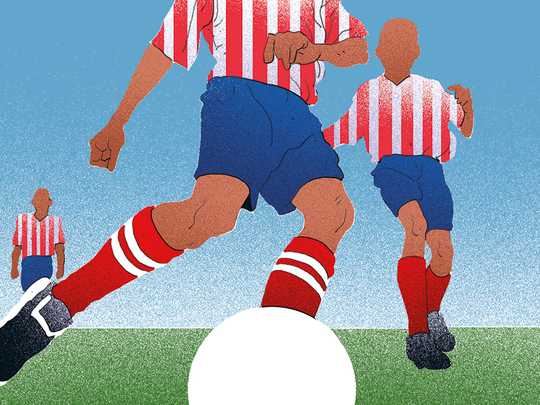
Yong Zhao of the University of Kansas is an imaginative and resourceful scholar. His new book, Reach for Greatness: Personalizable Education for All Children, inspired me. So why did I scrawl so many angry comments on it?
I liked the way Zhao blew off the usual stale debates over standards and tests with this sentence: “To help each child achieve his or her full potential, we need an education that starts from the child’s passions and strengths, instead of prescribed skills and content.”
He’s right. We argue about schools as if they are nothing more than English, Math, History, Science and the spring state exams. Zhao describes classes that start very differently, with questions such as, “What do you want to learn about?” Mistakes are OK, and Zhao hooked me in a good way with his own errors in a section called ‘Education’s Big Lie’. He said: “The education system rarely cares about the children’s individual passions or talents. The only passion it cares about is the passion to become a good student ... Worse, the current education system actively suppresses individual talents and passions by defining what educational success means and convincing students, parents and the public to accept the definition.”
My first reaction was visceral. “That is so wrong,” I told myself. Then, I realised that Zhao, in pushing his thesis a bit too hard, revealed the truth of his main point. I saw why so many critics of the American system have wrongly trashed the true sources of the nation’s power to fuel individual passions. They are high school activities: Band, football, field hockey, robotics club, hip-hop club, drama, choir. The list is endless.
I have yet to find an American high school that successfully suppressed individual talents or convinced students and parents to sacrifice all for study.
Current educational paradigm
Zhao told me later he should have been more careful to say he was referring in that section not to real campuses, but to the current educational paradigm in general, the emphasis on achievement gains, effective instruction and college readiness.
Actual high schools are hotbeds of resistance to that mental straitjacket. According to the University of Michigan Institute for Social Research, the average 15-17-year-old American spends less than an hour a day on homework. US high schools heartily welcome unscholarly pursuits because American culture demands it. High school would have ceased to exist as a vital part of our growing up if it had not developed the clubs, sports and other cherished extracurriculars much of the rest of the world ridicules as a waste of study time.
Even students who lust for Ivy admission spend hundreds of hours a year in nonacademic pursuits because the most selective US colleges think that’s a good sign of character and potential. Do you like softball? Better get on a travel team. Is poetry fun for you? See if you can get published in Phoebe or the Louisville Review.
For 40 years, academic critics have condemned what they call the ‘Shopping Mall High School’ — our desire for something for everyone. E.D. Hirsch Jr of the University of Virginia said this “cafeteria style education” diminished the exchange of key information between generations.
But I say hurrah for the Dragonslayer’s Society at T.C. Williams High in Alexandria, Virginia, and the Dude, Be Nice, Club at Agoura High in Agoura Hills, California. Many American teens who embraced TV and video games grew up to be billionaires as a result. Studies indicate sports in school nurture leadership and teamwork in life.
Zhao explores the radical vision of Australia’s Templestowe College, where students were asked what they wanted to study, leading to more courses on video game design and animals. He describes the Be About It class at Barnegat High in Barnegat, New Jersey, where the focus of students’ year-long projects is up to them.
Zhao does not admire the education system of his native China, where the study-all-the-time culture remains strong. Even Chinese education officials want to change that. They have noticed that American schools, so often criticised, are turning out more creative and less routinised individuals, who eventually snag more Nobel Prizes than the Chinese do.
— Washington Post
Jay Mathews is an author and education columnist.











